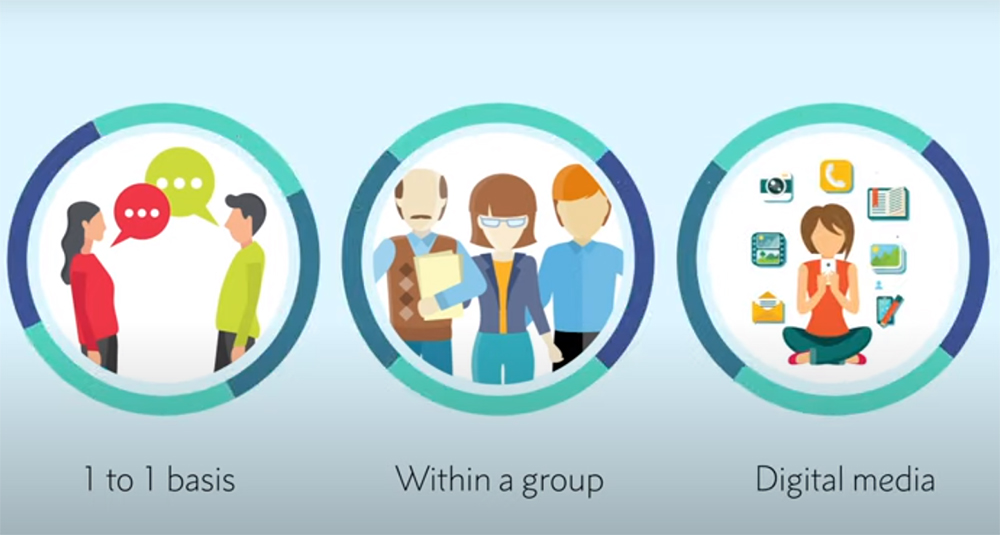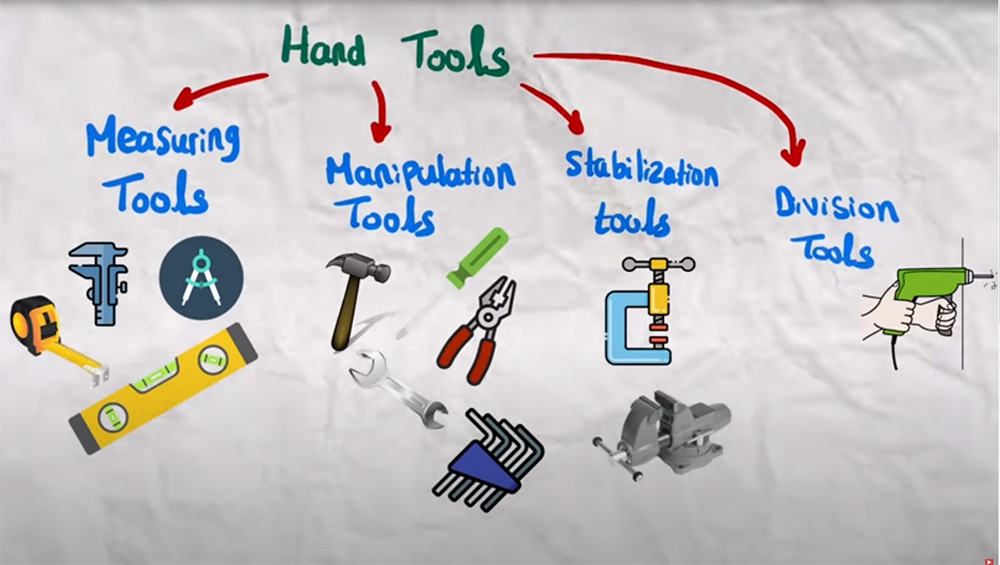In the dynamic realm of technology, the roles of Application Engineers and Software Engineers often intertwine, leading to a degree of confusion regarding their distinctions. This article delves into the intricate variances between these two crucial positions within the software development landscape. Application Engineers specialize in tailoring software solutions to meet specific user needs, working closely with clients to ensure seamless, user-friendly applications.
On the other hand, Software Engineers are the architects of the digital world, responsible for designing, developing, and maintaining the core software systems that power our devices and platforms. Understanding the differences between these roles is fundamental for anyone considering a career in software development or seeking to collaborate effectively in this dynamic field.
What Is An Application Engineer?

Application Engineers work closely with clients or stakeholders to gather requirements, understand their needs, and tailor software applications accordingly. They are skilled in various programming languages, frameworks, and tools, often specializing in areas like mobile app development, web applications, or desktop software.
Application Engineers also play a vital role in testing, deploying, and providing ongoing support for the applications they develop, ensuring they function smoothly and remain up-to-date with evolving technology trends.
Application Engineer – Roles & Responsibilities:
Develop Apps & Improve Existing Software
One of the fundamental responsibilities of an Application Engineer is to design, develop, and customize software applications. These applications can range from web and mobile apps to desktop software, and they are typically tailored to meet the specific requirements of clients or end-users.
The process of application development begins with a deep understanding of the client’s needs, objectives, and constraints. Application Engineers collaborate closely with clients to ensure that the software they create aligns with the desired functionality, user experience, and overall business goals.
Provide Tech Support To Clients
In addition to developing software applications, Application Engineers often find themselves in the role of a technical support resource for clients. This aspect of their role involves assisting end-users in utilizing the software effectively and resolving any technical issues that may arise. Whether it’s troubleshooting, addressing user concerns, or providing guidance on software functionality, Application Engineers act as the first line of support.
Provide Hardware Upgrades
Application Engineers are often tasked with ensuring that the software they develop runs smoothly on the hardware used by clients. This involves assessing the hardware requirements of the software and recommending or implementing hardware upgrades when necessary.
Make Sales Recommendations
Beyond technical and support roles, Application Engineers may also have a hand in the sales process. They possess the expertise to identify opportunities where their software solutions can address specific business challenges and create value for potential clients. Their insights can be invaluable in tailoring software proposals and making informed sales recommendations.
Document & Inventory Systems
Maintaining comprehensive documentation is an essential part of an Application Engineer’s role. Effective documentation ensures that the software remains manageable, supportable, and understandable. It plays a crucial role in knowledge transfer within a team and allows for efficient troubleshooting and maintenance.
Education

Requirements
The prerequisites for becoming an Application Engineer go beyond education. Employers seek candidates who not only possess the right qualifications but also exhibit key qualities and skills necessary for success in this field.
Some of the typical requirements for an Application Engineer position include:
- Education: A bachelor’s degree in computer science, software engineering, or a related field is typically required. Advanced degrees or certifications can be advantageous;
- Programming Proficiency: A strong command of programming languages, such as Java, Python, C++, or JavaScript, is essential;
- Problem-Solving Skills: Application Engineers must be adept at troubleshooting and finding solutions to technical issues and challenges;
- Communication Skills: Effective communication is crucial for interacting with clients, providing support, and collaborating with team members;
- Analytical Thinking: The ability to analyze requirements and design effective solutions is a fundamental skill;
- Project Management: Application Engineers often work on multiple projects simultaneously. Project management skills help in prioritizing tasks and meeting deadlines;>
- Adaptability: Given the ever-evolving nature of technology, Application Engineers must be open to learning new tools and technologies
- Customer-Centric Approach: A focus on understanding and addressing the needs of end-users and clients is critical [2];
Skills
In addition to meeting the basic requirements, successful Application Engineers possess a diverse set of skills that enable them to navigate the multifaceted nature of their role. These skills include:
- Software Development Skills: Proficiency in software development is a core skill. Application Engineers must be able to write code, design software, and work with various development tools and frameworks;
- Database Management: Understanding and effectively working with databases is essential, as data storage and retrieval are integral to many software applications;
- Technical Support: Troubleshooting and providing technical support requires a deep understanding of the software and its potential issues;
- Problem Solving: The ability to identify and solve complex problems is invaluable for addressing technical challenges and creating innovative solutions;
- Interpersonal Skills: Application Engineers must collaborate with clients, team members, and other stakeholders. Effective communication and teamwork are key;
- Documentation: Creating and maintaining documentation, both technical and user-facing, is a critical skill;
- Project Management: Managing multiple projects and ensuring they stay on track demands strong project management skills;
- Sales and Communication: The capability to communicate effectively with potential clients and recommend software solutions is valuable in a sales-oriented role;
What Is A Software Engineer?

Software engineers typically work in teams to develop software that meets specific needs or solves particular problems. This could be anything from creating a new operating system, designing a mobile app, or developing a complex database system [3].
The role involves a wide range of tasks, including:
- Designing software systems based on user requirements;
- Writing efficient and reliable code;
- Testing and debugging software;
- Maintaining and improving existing software;
- Collaborating with other team members to deliver high-quality software;
Software engineers often specialize in areas such as frontend development (focusing on the user interface), backend development (focusing on the server side), or full-stack development (covering both).
To become a software engineer, one typically needs a degree in computer science, software engineering, or a related field. However, some individuals become software engineers through self-study, bootcamp programs, or on-the-job training.
Software Engineer – Roles & Responsibilities:
Develop Apps & Improve Existing Software
One of the primary responsibilities of a Software Engineer is to design, develop, and enhance software applications. This includes creating new software products from scratch and improving existing ones to ensure they remain efficient, secure, and up-to-date with evolving technology standards.
Provide Tech Support To Clients
Software Engineers often find themselves in the role of providing technical support to clients or end-users. This includes assisting with software-related issues, troubleshooting problems, and ensuring a smooth user experience.
Provide Hardware Upgrades
Ensuring that software runs smoothly on the hardware used by clients is another crucial aspect of a Software Engineer’s role. This involves assessing hardware requirements and recommending or implementing hardware upgrades when necessary.
Make Sales Recommendations

Software Engineers often collaborate closely with sales and marketing teams to leverage their technical expertise in making sales recommendations. They identify opportunities where their software solutions can address specific business challenges and create value for potential clients.
Document & Inventory Systems
Effective documentation is crucial for the development and maintenance of software systems. Software Engineers create and maintain documentation that helps team members understand the software and its development process. They also play a role in managing software and hardware inventory.
Education
To become a Software Engineer, a strong educational background is typically required. Most professionals in this field hold at least a bachelor’s degree in computer science, software engineering, or a related discipline. Advanced positions and specialized roles may benefit from master’s degrees or additional certifications.
Requirements
Becoming a Software Engineer goes beyond education; it also involves meeting certain requirements and qualities that make a candidate well-suited for the role. The typical requirements include:
- Education: A bachelor’s degree in computer science, software engineering, or a related field;
- Programming Proficiency: Proficiency in one or more programming languages is essential for writing code and developing software;
- Problem-Solving Skills: Software Engineers need to excel in problem-solving to identify and address complex technical issues;
- Analytical Thinking: The ability to analyze requirements and design effective software solutions is a fundamental skill;
- Attention to Detail: Precision is critical when writing code and debugging, as small errors can have significant consequences;
- Communication Skills: Effective communication is vital for collaborating with team members, understanding client needs, and documenting the software;
- Teamwork: Software development often involves working in teams, so collaboration and teamwork skills are important;
- Adaptability: Given the rapid pace of technological change, Software Engineers need to be open to learning new tools and technologies;
- Project Management: Managing multiple projects, setting priorities, and meeting deadlines require strong project management skills;
- Creativity: Creative thinking is valuable for solving unique challenges and designing innovative solutions [4];
Skills
In addition to meeting the basic requirements, successful Software Engineers possess a diverse set of skills that enable them to navigate the multifaceted nature of their role. These skills include:
- Software Development Skills: Proficiency in software development is a core skill. Software Engineers must be able to write code, design software, and work with various development tools and frameworks;
- Database Management: Understanding and effectively working with databases is essential, as data storage and retrieval are integral to many software applications;
- Technical Support: Troubleshooting and providing technical support require a deep understanding of the software and its potential issues;
- Problem Solving: The ability to identify and solve complex problems is invaluable for addressing technical challenges and creating innovative solutions;
- Interpersonal Skills: Software Engineers must collaborate with clients, team members, and other stakeholders. Effective communication and teamwork are key;

- Documentation: Creating and maintaining documentation, both technical and user-facing, is a critical skill;
- Project Management: Managing multiple projects and ensuring they stay on track demands strong project management skills;
- Sales and Communication: The capability to communicate effectively with potential clients and recommend software solutions is valuable in a sales-oriented role;
Similarities Between An Application Engineer And A Software Engineer:
Application Engineers and Software Engineers are both critical players in the software development field, with their roles intersecting in several key aspects. Despite differences in their specific responsibilities, they share similarities in terms of requirements, training, and work environments.
Requirements:
- Educational Background: Both Application Engineers and Software Engineers typically require a bachelor’s degree in a related field, such as computer science, software engineering, or a similar discipline. Some professionals may pursue advanced degrees or certifications for career advancement or specialization;
- Programming Skills: Proficiency in programming languages and the ability to write code are fundamental requirements for both roles. Whether it’s developing software applications or customizing them to meet specific client needs, strong programming skills are essential;
- Problem-Solving Abilities: Both roles demand a high degree of problem-solving capabilities. Whether it’s debugging software issues, optimizing performance, or addressing technical challenges, the ability to analyze problems and find effective solutions is a shared skill;
- Analytical Thinking: Application Engineers and Software Engineers engage in analytical thinking when evaluating requirements, designing software systems, and making decisions about architecture and functionality;
- Communication Skills: Effective communication is crucial in both roles. Engineers need to collaborate with clients, team members, and other stakeholders, as well as provide support and documentation. Clear communication ensures project success and user satisfaction;
- Project Management: Project management skills are valuable for managing multiple projects, setting priorities, and meeting deadlines. Both roles may involve working on multiple projects simultaneously, making effective project management essential;
Training:
- Formal Education: Both Application Engineers and Software Engineers typically undergo formal education in computer science or a related field. This education provides them with a strong foundation in programming, software development methodologies, and problem-solving skills;
- Continuous Learning: In the fast-evolving tech industry, continuous learning is crucial. Both roles require professionals to stay updated with the latest programming languages, development tools, and industry best practices to remain effective in their positions;
- Certifications: Some professionals in both roles may pursue certifications to validate their expertise in specific technologies or methodologies. These certifications can enhance their qualifications and career prospects;
Work Environment:
- Collaborative Environments: Application Engineers and Software Engineers often work in collaborative environments, either as part of a development team or in coordination with other departments. Effective teamwork and communication are essential for project success;
- Office Settings: The work environment for both roles is typically in an office setting, although remote work opportunities have become increasingly common, especially in the wake of technological advancements and global events such as the COVID-19 pandemic;
- Client Interaction: Both roles involve interactions with clients or end-users to gather requirements, provide support, and understand specific needs. Effective client communication is vital for ensuring that software solutions meet user expectations;
- Problem-Solving Culture: A problem-solving culture prevails in the work environment of both Application Engineers and Software Engineers. They often collaborate to troubleshoot and resolve technical issues, whether it’s debugging code, addressing software glitches, or optimizing system performance [5];
Software Engineer vs. Application Engineer – What’s the Difference:
Job Duties
1) Software Engineer:
- Software Engineers are responsible for designing, developing, and maintaining software systems and applications;
- They are involved in the full software development life cycle, from concept and design to coding, testing, debugging, and ongoing maintenance;
- Software Engineers may work on various types of software, including operating systems, databases, web applications, and mobile apps;
- Their work includes creating complex algorithms, designing system architectures, and optimizing software performance;
2) Application Engineer:
- Application Engineers focus on developing and customizing software applications to meet specific user or client needs;
- They often work closely with clients to understand their requirements and tailor software solutions accordingly;
- Application Engineers may specialize in areas like mobile app development, web applications, or desktop software;
- Their primary goal is to ensure that the software applications they create are user-friendly and aligned with client objectives;
Job Requirements
1) Software Engineer:
- A bachelor’s degree in computer science, software engineering, or a related field is typically required;
- Proficiency in multiple programming languages, strong problem-solving skills, and a deep understanding of software development methodologies are essential;
- Software Engineers often need to manage large, complex projects and work with diverse teams;
2) Application Engineer:
- Similar to Software Engineers, Application Engineers usually need a bachelor’s degree in computer science or a related discipline;
- They require expertise in programming languages relevant to their specialization, as well as strong problem-solving skills;
- Application Engineers often interact directly with clients, so effective communication and client-facing skills are valuable;
Engineer Skills
1) Software Engineer:
- Software development skills are central to their role, including coding, software architecture design, and debugging;
- They must have a deep understanding of data structures, algorithms, and various software development tools and frameworks;
2) Application Engineer:

- Application Engineers focus on developing user-friendly applications, so their skills encompass user interface (UI) and user experience (UX) design;
- They also have expertise in software customization and tailoring solutions to meet specific requirements;
Salary
1) Software Engineer:
- Software Engineers typically enjoy a broad salary range, which varies depending on factors such as experience, location, and the specific industry they work in;
- Their salaries tend to be competitive, with opportunities for higher earnings as they gain experience and expertise;
2) Application Engineer:
- Application Engineers may have salary ranges that are competitive, but their earnings can also vary based on factors like experience, location, and the complexity of projects they work on;
- Specialization in certain high-demand areas, such as mobile app development, can lead to higher salaries;
Work Environment
1) Software Engineer:
- Software Engineers often work in a variety of settings, including large corporations, startups, or as freelancers;
- They collaborate with cross-functional teams, which may include other engineers, designers, and project managers;
- Remote work opportunities have become more common, especially in the wake of global events like the COVID-19 pandemic;
2) Application Engineer:
- Application Engineers typically work in environments that involve close collaboration with clients or end-users;
- They may work directly with clients to gather requirements, provide support, and ensure that software solutions align with client expectations;
Certifications
1) Software Engineer:
- Certifications can enhance a Software Engineer’s qualifications, but they are not typically mandatory for the profession;
- Some professionals choose to obtain certifications in specific programming languages, development methodologies, or tools to validate their expertise;
2) Application Engineer:
Similar to Software Engineers, certifications are often optional for Application Engineers. They may pursue certifications that relate to their specialization, such as mobile app development or web application design, to demonstrate their skills and knowledge to clients and employers.

FAQ:
-
Is an application developer solely dedicated to mobile devices?
No, an application developer is not solely dedicated to mobile devices. While mobile application development is a common specialization for application developers, their work can encompass various platforms, including web applications, desktop software, and other digital systems. Application developers tailor software solutions to meet specific user or client needs, and their focus extends beyond mobile devices to address a wide range of requirements.
-
What distinguishes application development from software programming, and what makes it similar?
Application development is a subset of software programming. While software programming involves writing code to create software systems or components, application development focuses specifically on building applications to serve user needs. The distinction lies in the scope and purpose, with application development concentrating on creating user-facing software. Both involve writing code, problem-solving, and adhering to programming principles, making them similar in terms of core skills and methodologies.
-
What is the controversy over the terms “application developer” and “software developer”?
-
Does the title “application developer” make a difference?
The title “application developer” can make a difference in terms of specialization and the specific nature of the work. It communicates a focus on creating user-facing applications tailored to meet specific needs. The title may be used to indicate expertise in developing software for particular platforms, such as mobile apps, web applications, or desktop software.
-
Is it important to have the title of a software developer?
The importance of the title “software developer” depends on individual career goals and the nature of the work. It is a more general and inclusive term that can encompass various software-related roles. Having the title may be significant for professionals aiming for broader roles in software development, including system architecture and backend development, as it implies a comprehensive understanding of software engineering.
-
In which states are software developers preferred above software engineers?
The preference for software developers over software engineers is not typically tied to specific states but varies by industry and company culture. Some industries, such as startups and smaller tech companies, may use the title “developer” more frequently. However, it’s important to note that the preference can change over time and may not be limited to specific states.
-
Is it okay to refer to someone as an application developer?
Yes, it is appropriate to refer to someone as an application developer if their primary role involves creating software applications to address specific user or client needs. The title accurately reflects their specialization and expertise in developing user-facing software.
-
Can I become an AI engineer to a software engineer?
Yes, you can transition from being an AI engineer to a software engineer or vice versa, as the two roles share foundational skills in programming, problem-solving, and software development. The transition may require additional training or education to adapt to the specific demands of the new role, but it is feasible, especially if you already possess a strong technical background.
-
Does an application engineer do coding?
Yes, application engineers are typically involved in coding. They write code to create, customize, and maintain software applications. Coding is a fundamental aspect of their job, as it is essential for implementing the functionalities and features of the applications they develop.
-
Do software engineers make web apps?
Yes, software engineers often create web applications. Web development is a common specialization within software engineering, and software engineers are responsible for designing, coding, and maintaining web applications that run in web browsers. They use various programming languages, frameworks, and tools to build web applications.
-
What are application engineer skills?
Application engineers require a diverse set of skills, including programming proficiency, problem-solving, user interface (UI) and user experience (UX) design, client communication, and the ability to customize and tailor software solutions to specific user or client requirements. Skills in project management, documentation, and debugging are also valuable in their role.
-
Is application engineering a good career?
Application engineering can be a rewarding career, particularly if you enjoy developing user-facing software and have an aptitude for problem-solving and coding. The demand for application engineers is substantial, and the field offers opportunities for career growth and specialization in various application types.
-
What is the career path of an application engineer?
The career path of an application engineer often involves starting as a junior developer and progressing to roles with increased responsibilities. As they gain experience, they may become senior developers, lead application engineers, or specialists in specific areas like mobile app development, web applications, or desktop software.
-
Is an application engineer a sales engineer?
No, an application engineer is distinct from a sales engineer. While both roles may interact with clients, an application engineer primarily focuses on software development and customization, tailoring software solutions to meet specific needs. Sales engineers, on the other hand, focus on explaining and selling technical products or services to clients, bridging the gap between sales and technical aspects.
-
Is a software engineer an IT professional?
Software engineers are often considered IT professionals because their work involves creating and maintaining the software systems that underpin information technology. However, the term “IT professional” can encompass a broader range of roles related to information technology, including network administrators, system administrators, and database administrators, in addition to software engineers.
-
Can AI really replace software engineers?
AI has the potential to automate certain aspects of software development, such as code generation and automated testing. However, AI is unlikely to replace software engineers entirely. Software development involves creativity, problem-solving, and complex decision-making that currently exceeds AI capabilities. Instead, AI is expected to augment and enhance the work of software engineers by automating routine tasks and providing insights.
Useful Video: A Fun Train Story Explains: Application vs. Software, Application Engineer vs. Software Engineer
References:
- https://www.bmc.com/blogs/application-engineer-roles-and-responsibilities/
- https://enou.co/blog/application-developer-vs-software-developer/
- https://in.indeed.com/career-advice/finding-a-job/application-engineer-vs-software-engineer
- https://climbtheladder.com/software-engineer-vs-application-engineer/
- https://megainterview.com/software-engineer-vs-application-engineer/









Leave a Review